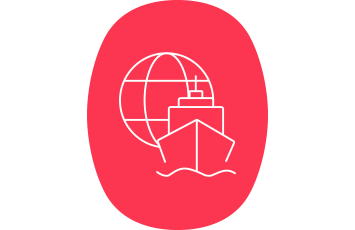Ship energy efficiency and marine renewable energy
Technical Bulletin 2014
This section concerns two important domains related to energy in the marine and offshore sector : the energy efficiency of ships and the exploitation of marine renewable energy (MRE).
Energy efficiency is a crucial aspect of ships today, both from regulation, with the reduction of emissions, and exploitation, with the reduction of fuel consumption, points of view. The first three papers focus on various design and operational aspects of this subject.
The first paper investigates the effect of hull and propeller fouling on fuel consumption. Sea trials have been performed and analyzed to evaluate the respective contribution of hull and propeller fouling to the performance degradation of a crude oil tanker. A global energy model of the ship has been developed and complete voyage simulations have been performed to estimate the impact of fouling on the duration of the voyage and on the MDO and HFO total consumptions. The study is completed by a cost benefit analysis that enables to propose an optimum maintenance frequency of the ship.
From an energetic point of view, ships are very complex systems where energy flows and transformations are diverse. Consequently, an holistic approach is necessary to understand and optimize the ship design and operation for energy efficiency. Bureau Veritas has been developing and applying its Ship Energy Efficiency Calculation and Analysis Tool (SEECAT) in this purpose for several years. However, one of the current bottleneck for such modeling concerns the engines (in particular 2-stroke main engines) that represent an energy consumer, but also a potential source of thermal energy recovery. The second paper presents the development of a new diesel engine model, based on the mean value approach, that will enable to obtain a more accurate fuel consumption prediction and a full energy balance of the engine, including in off-design conditions, and will also allow to apply exergy analysis for the identification of possible thermal energy recovery.
Monitoring the ship performance at sea is an important capability for optimizing ship operations. The third paper presents the E2 tool that is under development, in this purpose, by Tecnitas, the consultancy subsidiary company of Bureau Veritas. E2 enables to record real consumptions on board (automatic input data acquisition/manual/composite) and to calculate the corresponding fuel Key Performance Indicators (KPI’s) and emissions KPI’s. Additional simulation and benchmark modes are also developed to assist the ship owner for voyage planning and fleet management respectively.
In the booming sector of Marine Renewable Energy, innovative platform concepts combining new MRE technologies such as wave or current devices with more mature offshore wind technology are being investigated. Many challenges are induced by these innovative platforms, and guidelines and standards, that do not exist at the present early stage of platform development, will be required to ensure safety, reliability and quality. The new risk-based approach worked out by Bureau Veritas within the scope of the EU MARINA R&D project, to support the elaboration of such guidelines and standards, is presented in the fourth paper.
Contents
| articles | authors |
|---|---|
|
Y. Giorgiutti, F. Rezende, S. Van, C. Monteiro & G. Preterote |
|
|
Development of a marine diesel mean-value model for holistic ship energy modelling |
P. Marty, P. Corrignan & J.-F. Hétet |
|
Y. Le Gonidec, C. Andreau |
|
|
L. M. Macadré, K. O’Sullivan, A. Breuillard & S. Le Diraison |









